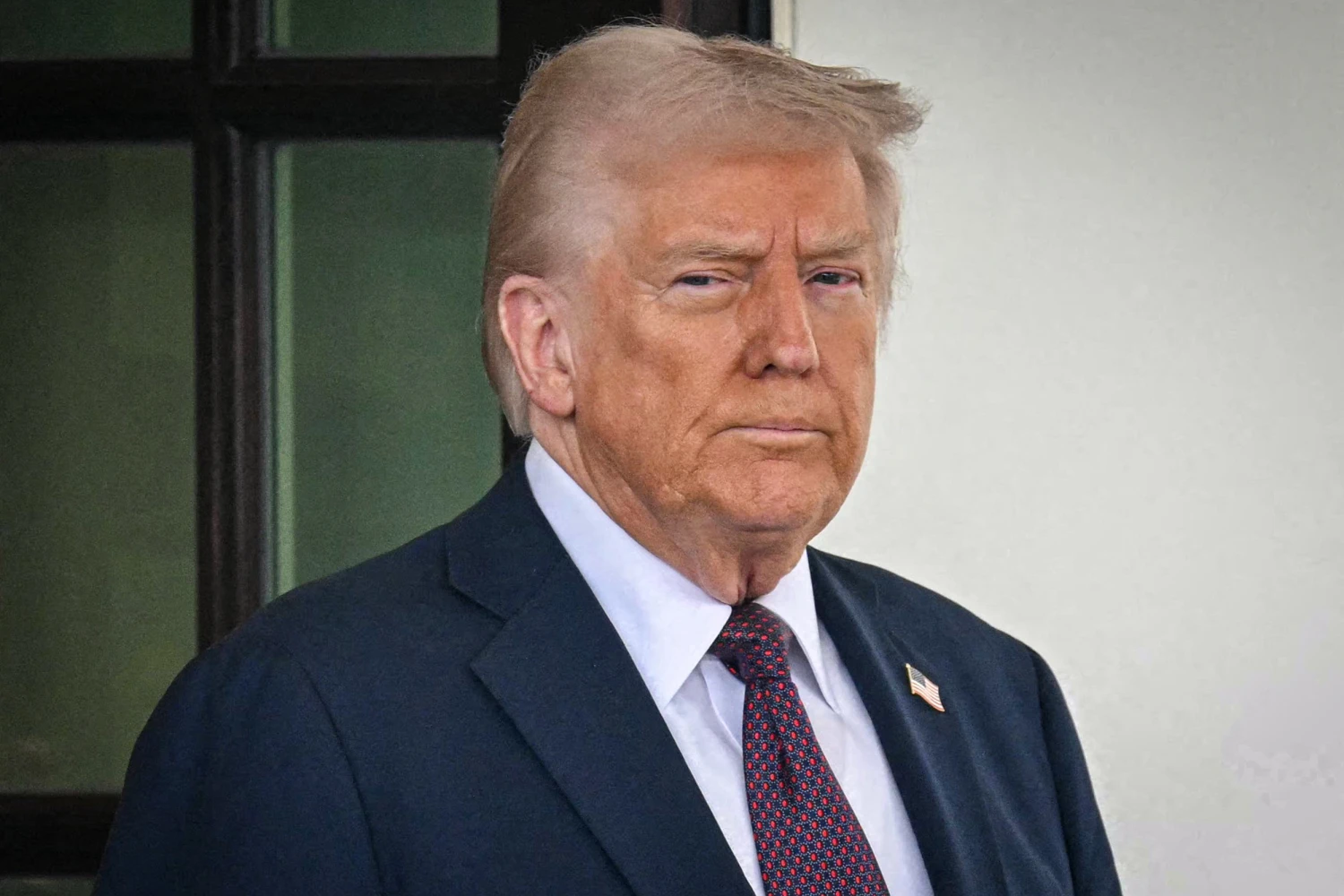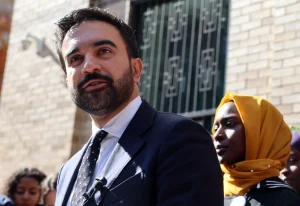In a ruling that could reshape presidential powers over domestic military use, a federal judge has determined that President Donald Trump acted illegally when he ordered National Guard troops to Portland, Oregon, during a series of protests earlier this year. The decision marks the first permanent court block against the administration’s deployment of troops to U.S. cities amid civil unrest.
The 106-page ruling, issued by U.S. District Judge Karin Immergut, concludes that Trump’s order violated federal law and overstepped his constitutional authority. The judge found that the administration failed to justify its use of the National Guard, ruling that the protests in Portland did not amount to a rebellion or insurrection against the government — the legal standard required to invoke the emergency powers Trump used.
“The occasional interference to federal officers has been minimal,” Judge Immergut wrote. “There is no evidence that these small-scale protests have significantly impeded the execution of any immigration laws.”
A Major Legal Setback for Trump’s Domestic Military Policy
The decision represents a major rebuke of Trump’s broader approach to domestic unrest. The administration has frequently defended the use of federal forces as necessary to “protect law and order” in cities governed by Democrats, including Los Angeles, Chicago, and Washington, D.C.
However, Immergut’s decision — while narrow in focus — sets a precedent that may limit future presidential authority to use the military on American soil, except in genuine emergencies such as rebellion, invasion, or large-scale breakdowns of law enforcement.
Legal analysts say the case could ultimately reach the U.S. Supreme Court, where the Trump administration is expected to appeal.
White House Responds, Vows to Fight the Ruling
In a statement following the decision, White House spokeswoman Abigail Jackson defended the president’s actions, saying Trump had acted “within his lawful authority” to protect federal personnel.
“President Trump will not turn a blind eye to the lawlessness plaguing American cities,” Jackson said. “We expect to be vindicated by a higher court.”
The Oregon Attorney General’s Office, which brought the case alongside the City of Portland, did not immediately respond to requests for comment. However, state officials have long accused the administration of manufacturing a crisis in order to justify sending in troops.
Background: Protests and Political Tensions
The events in question stem from a wave of protests that erupted in Portland in late 2025. The demonstrations were primarily directed at federal immigration policies and the presence of Immigration and Customs Enforcement (ICE) facilities in the city.
While most of the protests were peaceful, occasional clashes with police and minor property damage were reported. The Trump administration characterized the unrest as part of a “rebellion” that warranted federal military intervention.
But local officials — including Oregon’s attorney general and Portland’s mayor — said the federal narrative grossly exaggerated the scale of violence. They argued that local law enforcement had the situation under control and that federal intervention would only escalate tensions.
Inside the Courtroom: Dueling Narratives
The court’s three-day bench trial revealed starkly contrasting depictions of the Portland protests.
Justice Department lawyers portrayed the city as “under siege,” claiming that federal officers were being overwhelmed by violent mobs. Their arguments echoed Trump’s own public statements describing Portland as “war-ravaged” and “out of control.”
In contrast, lawyers for Oregon and the City of Portland presented evidence showing that the majority of demonstrations were nonviolent and that isolated incidents of violence were contained by local police.
Judge Immergut ultimately agreed with the latter account, writing that the violence was “small-scale, isolated, disorganized,” and largely subsided by the time Trump ordered the National Guard’s deployment in late September.
A Question of Presidential Power
At the center of the dispute lies the Insurrection Act, an 1807 law that allows presidents to deploy military forces domestically under limited circumstances, such as rebellion or obstruction of federal law.
The Trump administration argued that the protests met this standard, claiming that federal officers were being prevented from carrying out their duties. Immergut rejected this claim, saying there was no credible evidence that law enforcement had lost control or that federal operations were seriously hindered.
“The record shows that the government retained full capacity to enforce immigration laws,” the judge wrote. “The protests, while occasionally disruptive, did not constitute an insurrection.”
Her opinion underscored that using the National Guard for political or symbolic purposes — rather than genuine emergencies — would undermine constitutional checks and balances and blur the lines between civilian and military authority.
Democrats Applaud, Republicans Condemn
Reaction to the ruling quickly split along partisan lines.
Democrats hailed the decision as a victory for civil liberties and constitutional order. Oregon Senator Jeff Merkley called it “a powerful reaffirmation that America is not a police state” and said the ruling ensures that “no president can use the military to intimidate dissenters.”
Republicans, however, condemned the ruling as judicial overreach. Texas Representative Marjorie Taylor Greene said the judge’s decision “ties the hands of law enforcement and rewards chaos,” while House Speaker Mike Johnson warned that it could “embolden violent agitators who know the federal government can’t intervene.”
Trump’s Broader Legal and Political Battles
The decision adds to a growing list of legal and political challenges facing Trump during his second term.
Just weeks ago, another federal court questioned the legality of the administration’s expanded use of federal forces in immigration-related operations. In addition, Trump is already appealing an earlier ruling that temporarily blocked his deployment of troops to Los Angeles and Chicago, citing similar legal flaws.
These ongoing disputes highlight what some critics call Trump’s “expansive interpretation” of executive power — a hallmark of his presidency and a source of recurring controversy throughout his administration.
What Comes Next
The Department of Justice is expected to file an appeal to the Ninth U.S. Circuit Court of Appeals, which is already reviewing a related interim order issued by the same judge last month.
Legal experts predict that whichever side loses at the appellate level will petition the Supreme Court for review. If accepted, the case could establish a major precedent defining the limits of presidential power to deploy military forces within U.S. borders.
“The Supreme Court hasn’t squarely addressed this issue in over a century,” said constitutional scholar David Graham of Georgetown Law. “What happens next could set the tone for executive power in domestic affairs for decades to come.”
A Defining Moment for Civil-Military Boundaries
For now, Immergut’s ruling effectively prevents the Trump administration from deploying National Guard troops to Portland under the claimed emergency powers.
While the White House remains defiant, the decision underscores growing judicial skepticism toward Trump’s use of force in politically sensitive contexts.
In the judge’s own words: “The Constitution does not permit the president to wield the military as a domestic police force simply because he disagrees with local authorities.”
If higher courts uphold her decision, it could become one of the most consequential legal rulings of Trump’s presidency — not only for its immediate political ramifications but for its long-term impact on the balance between federal authority, state sovereignty, and civil protest in America.

Emily Johnson is a critically acclaimed essayist and novelist known for her thought-provoking works centered on feminism, women’s rights, and modern relationships. Born and raised in Portland, Oregon, Emily grew up with a deep love of books, often spending her afternoons at her local library. She went on to study literature and gender studies at UCLA, where she became deeply involved in activism and began publishing essays in campus journals. Her debut essay collection, Voices Unbound, struck a chord with readers nationwide for its fearless exploration of gender dynamics, identity, and the challenges faced by women in contemporary society. Emily later transitioned into fiction, writing novels that balance compelling storytelling with social commentary. Her protagonists are often strong, multidimensional women navigating love, ambition, and the struggles of everyday life, making her a favorite among readers who crave authentic, relatable narratives. Critics praise her ability to merge personal intimacy with universal themes. Off the page, Emily is an advocate for women in publishing, leading workshops that encourage young female writers to embrace their voices. She lives in Seattle with her partner and two rescue cats, where she continues to write, teach, and inspire a new generation of storytellers.









